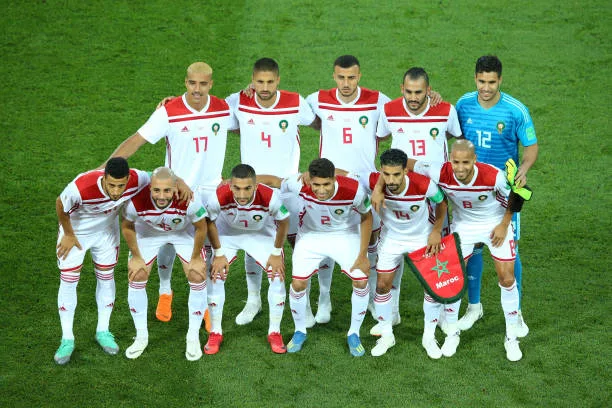Every four years, the world stands still for one event: the FIFA World Cup. Whether you're in Kigali, Rio, Tokyo, or London, the passion for football ignites across every corner of the globe. With over 3.5 billion viewers, this iconic tournament transcends borders, languages, and cultures — uniting people in a shared celebration of sport, pride, and identity.
The FIFA World Cup is more than just a sports competition; it's a global phenomenon, a cultural exchange, and a showcase of national pride. It tells stories of underdogs, rising stars, and unforgettable moments that live in the hearts of fans forever.
A Legacy Rooted in History
First held in 1930 in Uruguay, the FIFA World Cup has grown into the most prestigious international football tournament. Since then, it has crowned some of the sport's greatest champions — Brazil (5 titles), Germany (4 titles), Italy (4 titles), Argentina (3 titles) — and introduced legends like
Pelé,
Diego Maradona,
Zinedine Zidane,
Cristiano Ronaldo,
Lionel Messi.
A Platform for Global Unity and Cultural Exchange
While football is the focus, the World Cup is also about people — fans, nations, cultures, and emotions. It’s where a child from Rwanda can dream of playing on the same pitch as Kylian Mbappé. It’s where nations come together not in rivalry, but in celebration.
From colorful fan costumes to passionate chants, the World Cup promotes cultural exchange on an extraordinary level. Fans share dances, flags, foods, and languages. Despite different backgrounds, everyone speaks the same football language.
And let’s not forget the economic and diplomatic power of the World Cup. It fosters partnerships, promotes tourism, boosts local economies, and improves infrastructure in host countries.
A Showcase of National Identity and Inspiration
For every country, qualifying for the World Cup is a badge of honour. It boosts national pride and brings entire populations together in celebration. Even smaller nations — such as Morocco’s historic 2022 run to the semi-finals, or Croatia reaching the final in 2018 — prove that dreams are not reserved for giants.
For players, the World Cup is the pinnacle of their careers. For fans, it’s a time to proudly wear their national colors, celebrate their roots, and cheer with pride.
Innovation and Evolution: Looking Ahead to 2026
The FIFA World Cup 2026 promises to be the most ambitious yet. For the first time, the tournament will feature 48 teams and will be hosted by three nations — the United States, Canada, and Mexico.
This expansion will open doors to more countries and more players, giving fans more matches to enjoy. With advances in VAR technology, stadium sustainability, and digital fan engagement, FIFA is reimagining what a modern World Cup looks like.
The 2026 edition aims to break records for attendance, global viewership, and inclusion.
Africa’s Rising Presence in the World Cup
Africa’s presence in the World Cup is no longer symbolic — it’s competitive. From Cameroon’s historic 1990 run, Senegal’s 2002 shock, to Morocco’s groundbreaking 2022 performance, African teams are no longer underdogs — they are contenders.
More nations like Rwanda, Uganda, and Zambia are investing in youth development, talent scouting, and infrastructure to reach the global stage.
Why the FIFA World Cup Matters
The FIFA World Cup reminds us of the power of sport. In times of division and uncertainty, football unites. In times of struggle, it inspires. And in moments of celebration, it becomes the heartbeat of humanity.
Whether your team lifts the trophy or not, the memories, the goals, and the emotional rollercoaster make the World Cup unforgettable.
The FIFA World Cup is a rare event that unites the globe, celebrates human potential, and honors the beautiful game. It's not just about who wins — it’s about how the world comes together, every four years, for something truly magical.
Whether you're a die-hard fan or a casual viewer, the World Cup offers something unforgettable — a global celebration of hope, pride, and dreams.
FIFA World Cup Winners by Country
| Country | Number of Titles | Years Won |
|---|---|---|
| 🇧🇷 Brazil | 5 | 1958, 1962, 1970, 1994, 2002 |
| 🇩🇪 Germany | 4 | 1954, 1974, 1990 (as West Germany), 2014 |
| 🇮🇹 Italy | 4 | 1934, 1938, 1982, 2006 |
| 🇦🇷 Argentina | 3 | 1978, 1986, 2022 |
| 🇫🇷 France | 2 | 1998, 2018 |
| 🇺🇾 Uruguay | 2 | 1930, 1950 |
| England | 1 | 1966 |
| 🇪🇸 Spain | 1 | 2010 |

























0 Comments
At The Hot News Press, Your idea matters to us. Keep in touch.